
Kyiv: The Heartbeat of Ukraine
Welcome to Kyiv, the capital city of Ukraine, where history and modernity seamlessly intertwine. As one of the oldest cities in Eastern Europe, Kyiv boasts a rich tapestry of cultural heritage, stunning architecture, and vibrant street life. Nestled along the banks of the Dnieper River, this sprawling metropolis offers a unique blend of ancient landmarks and contemporary attractions. Explore Kyiv's historic heart, where the majestic Kyiv Pechersk Lavra, a UNESCO World Heritage Site, stands as a testament to the city's spiritual legacy. Wander through the cobblestone streets of Podil, an old merchant district, and discover charming cafes, eclectic shops, and the bustling Kontraktova Square. Don't miss the chance to visit the iconic Saint Sophia's Cathedral, with its golden domes and intricate mosaics, reflecting the city's Byzantine roots. Kyiv is also a city of green spaces, with numerous parks and gardens providing a serene escape from the urban hustle. Stroll through the picturesque Mariinsky Park or enjoy panoramic views of the city from Volodymyrska Hill. For a taste of contemporary Kyiv, head to Andriyivskyy Descent, a vibrant street filled with art galleries, theaters, and street performers. Whether you're a history buff, a nature lover, or an art enthusiast, Kyiv promises an unforgettable experience.
Local tips in Kyiv
- Use the Metro: Kyiv's metro system is efficient and cost-effective for getting around the city.
- Currency: Make sure to have some local currency (hryvnia) as not all places accept card payments.
- Language: While English is spoken in tourist areas, learning a few basic Ukrainian phrases can go a long way.
- Dress Modestly: When visiting religious sites, dress conservatively out of respect.
- Seasonal Visits: Summer and early fall are the best times to visit Kyiv for pleasant weather and outdoor activities.
Neighbourhoods in Kyiv
Kyiv: The Heartbeat of Ukraine
Welcome to Kyiv, the capital city of Ukraine, where history and modernity seamlessly intertwine. As one of the oldest cities in Eastern Europe, Kyiv boasts a rich tapestry of cultural heritage, stunning architecture, and vibrant street life. Nestled along the banks of the Dnieper River, this sprawling metropolis offers a unique blend of ancient landmarks and contemporary attractions. Explore Kyiv's historic heart, where the majestic Kyiv Pechersk Lavra, a UNESCO World Heritage Site, stands as a testament to the city's spiritual legacy. Wander through the cobblestone streets of Podil, an old merchant district, and discover charming cafes, eclectic shops, and the bustling Kontraktova Square. Don't miss the chance to visit the iconic Saint Sophia's Cathedral, with its golden domes and intricate mosaics, reflecting the city's Byzantine roots. Kyiv is also a city of green spaces, with numerous parks and gardens providing a serene escape from the urban hustle. Stroll through the picturesque Mariinsky Park or enjoy panoramic views of the city from Volodymyrska Hill. For a taste of contemporary Kyiv, head to Andriyivskyy Descent, a vibrant street filled with art galleries, theaters, and street performers. Whether you're a history buff, a nature lover, or an art enthusiast, Kyiv promises an unforgettable experience.
When is the best time to go to Kyiv?
Iconic landmarks you can’t miss
Володимирська Гірка
Experience the natural beauty and rich history at Volodymyrs'kyi Hill, a serene park offering stunning views and cultural landmarks in Kyiv.

Golden Gate
Discover the Golden Gate of Kyiv, a historic landmark that beautifully showcases the architectural heritage and cultural richness of Ukraine.
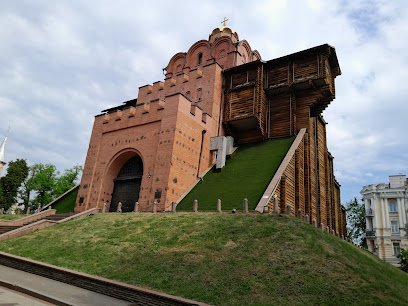
Arka Svobody Ukrayinsʹkoho Narodu
Discover Arka Svobody in Kyiv: A magnificent arch symbolizing Ukrainian freedom, surrounded by lush parklands and rich historical significance.

Kiev Pechersk Lavra
Explore the majestic Kiev Pechersk Lavra, a UNESCO World Heritage Site, and immerse yourself in the rich history and spirituality of Kyiv.
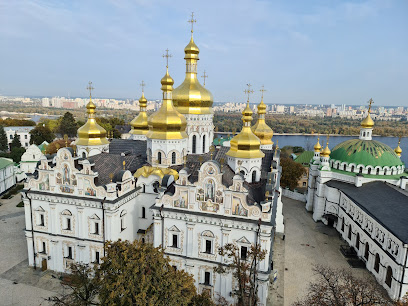
Independence Square
Discover Independence Square in Kyiv, a vibrant hub of history and culture, symbolizing Ukraine's journey to freedom and unity.

Park Landscape Alley
Explore the beauty of nature and art at Park Landscape Alley, a stunning park in Kyiv perfect for relaxation, exploration, and family fun.
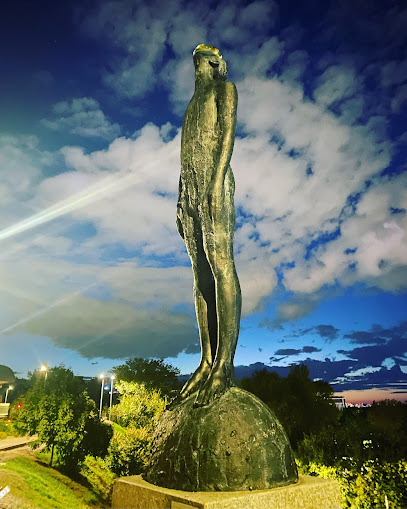
National Museum of the History of Ukraine in the Second World War
Explore the National Museum of the History of Ukraine in the Second World War, a profound tribute showcasing the courage and resilience of the Ukrainian people.

Expo Center of Ukraine
Explore the Expo Center of Ukraine: Where Culture, Art, and Innovation Meet in the Heart of Kyiv.
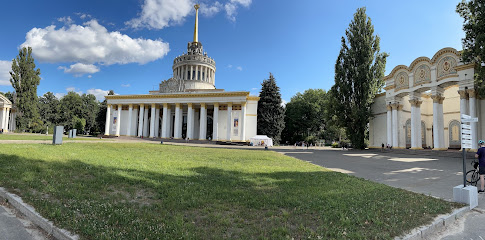
National Sports Complex “Olympiyskiy”
Explore the iconic National Sports Complex "Olympiyskiy", a landmark of Kyiv that celebrates sports, culture, and history in the heart of Ukraine.
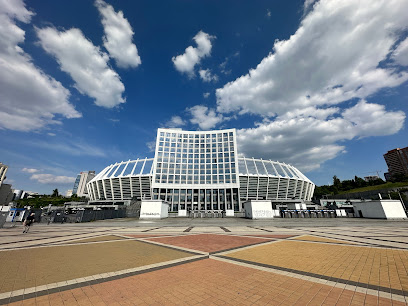
Ukrainian Motherland Monument
Explore the grandeur of the Ukrainian Motherland Monument, a symbol of strength and resilience in the heart of Kyiv, offering stunning views and rich historical context.
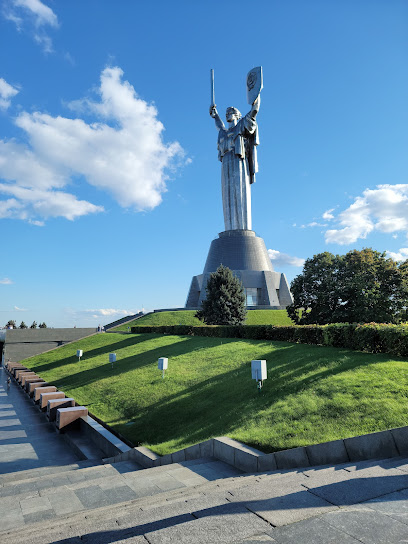
Park of Eternal Glory
Discover the serene Park of Eternal Glory in Kyiv, where history, beauty, and tranquility intertwine in a lush landscape.
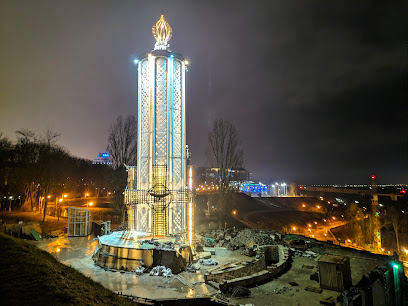
St. Michael's Golden-Domed Monastery
Discover the stunning architecture and rich history of St. Michael's Golden-Domed Monastery, a must-visit landmark in Kyiv, Ukraine.
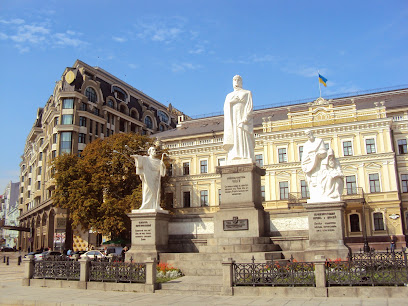
St. Andrew's Church
Discover the beauty and history of St. Andrew's Church in Kyiv, an architectural marvel and a must-see for any traveler exploring Ukraine.

Park Bridge
Explore the iconic Park Bridge in Kyiv, where stunning river views and vibrant parks create a picturesque escape for every traveler.
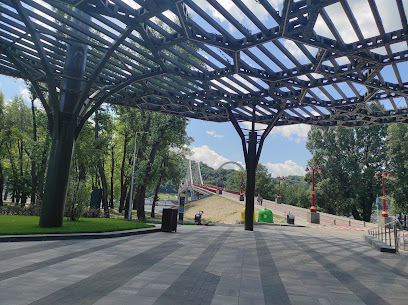
St. Volodymyr's Cathedral
Explore the breathtaking St. Volodymyr's Cathedral, a symbol of Ukraine's rich heritage and architectural beauty in the heart of Kyiv.
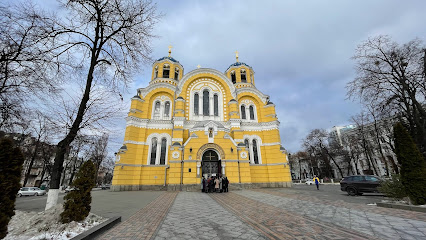
Unmissable attractions to see
Obolonsʹka Naberezhna
Explore the scenic beauty of Obolons'ka Naberezhna in Kyiv, a vibrant promenade perfect for relaxation, recreation, and local culture.
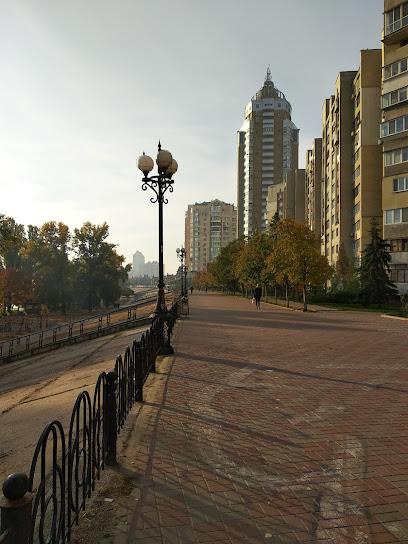
Taras Shevchenko Park
Discover the tranquility of Taras Shevchenko Park in Kyiv, a picturesque green oasis rich in history and beauty, perfect for relaxation and exploration.
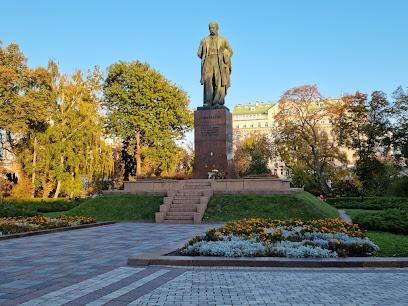
Kiev Zoo
Experience the rich biodiversity and educational wonders of Kiev Zoo, a must-visit attraction for animal lovers in Kyiv.
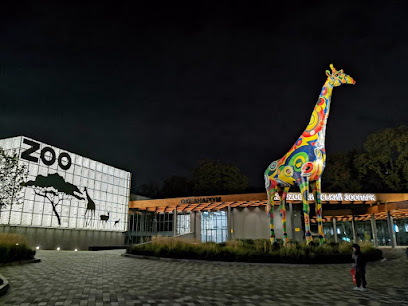
Kyiv National Botanical Garden
Explore the lush landscapes and diverse flora of Kyiv National Botanical Garden, an enchanting tourist attraction in the heart of Ukraine's capital.
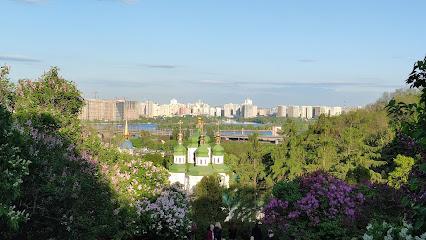
Golden Gate
Discover the majestic Golden Gate in Kyiv, an 11th-century architectural marvel and a key historical attraction in Ukraine.
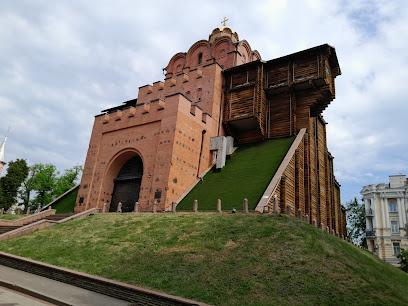
Arka Svobody Ukrayinsʹkoho Narodu
Explore the Arka Svobody Ukrayins'koho Narodu, a stunning cultural landmark in Kyiv symbolizing freedom and resilience amidst beautiful park surroundings.
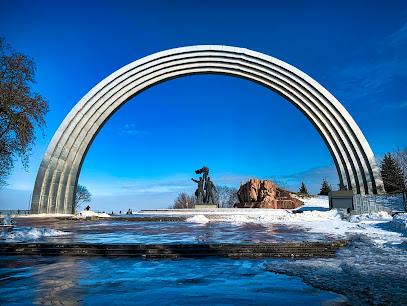
Kyiv-Pechersk Lavra
Explore the spiritual epicenter of Ukraine at Kyiv-Pechersk Lavra, a UNESCO World Heritage site filled with stunning architecture and rich history.
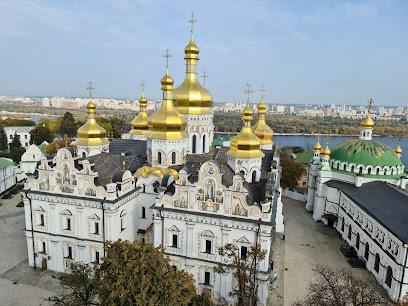
Independence Square
Explore the vibrant Independence Square in Kyiv, a historic hub reflecting the spirit and resilience of Ukraine's capital.
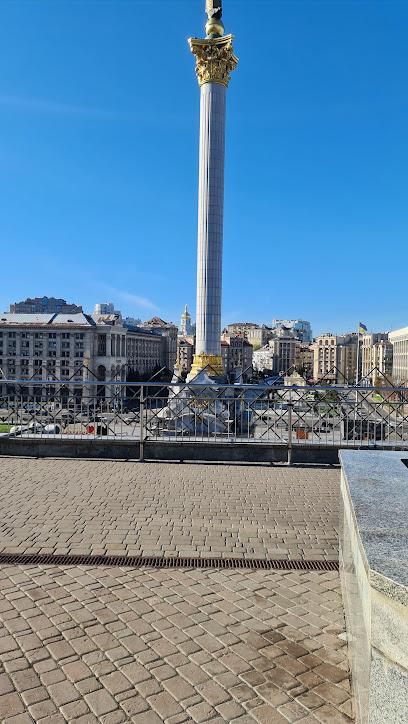
Hydropark
Explore Hydropark in Kyiv: A lush urban park offering recreation, stunning views, and a perfect escape for tourists seeking adventure and relaxation.
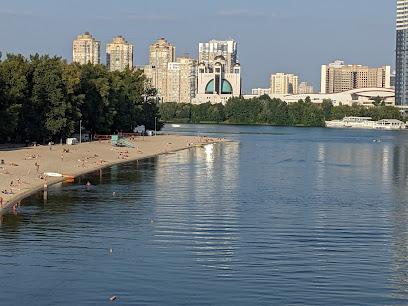
Park Landscape Alley
Experience the charm of Park Landscape Alley in Kyiv, where art, nature, and breathtaking views come together in a tranquil urban oasis.

National Museum of the History of Ukraine in the Second World War
Explore the poignant history of Ukraine during World War II at the National Museum of the History of Ukraine in the Second World War, a cultural landmark in Kyiv.
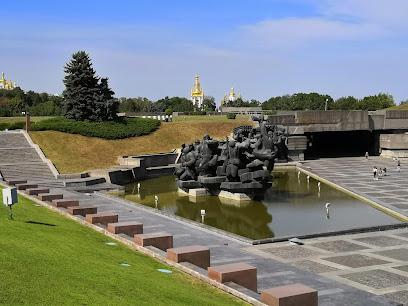
Expo Center of Ukraine
Explore the Expo Center of Ukraine in Kyiv, where vibrant exhibitions and cultural events showcase the best of Ukrainian innovation and tradition.
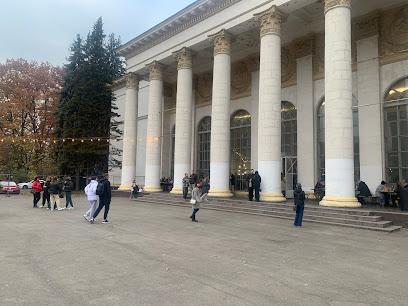
Mariinskyi Park
Explore the lush landscapes and rich history of Mariinskyi Park, a tranquil oasis in Kyiv's bustling city life.
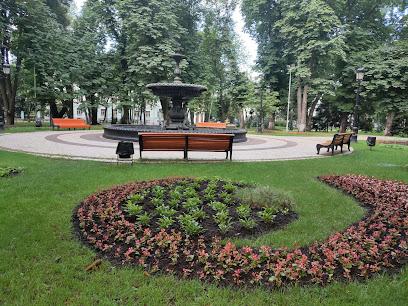
Mezhyhirya Residence
Discover the rich history and stunning architecture of Mezhyhirya Residence, a fascinating museum set in breathtaking gardens in Kyiv Oblast.
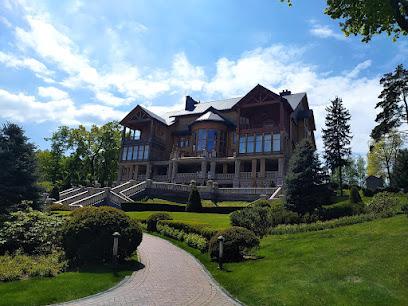
Park of Eternal Glory
Discover the serene beauty and historical significance of the Park of Eternal Glory in Kyiv, where nature meets memorial in a stunning landscape.
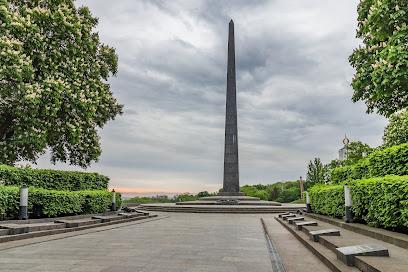
Essential places to dine
Puzata Hata
Experience authentic Ukrainian cuisine at Puzata Hata - where traditional flavors meet modern hospitality in the heart of Kyiv.
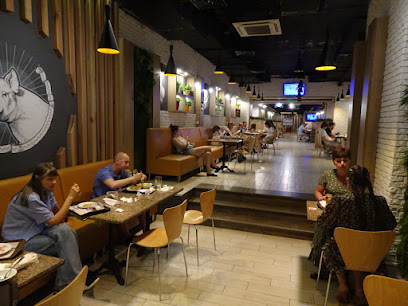
Musafir
Discover the rich flavors of Middle Eastern cuisine at Musafir in Kyiv - where every meal tells a story.
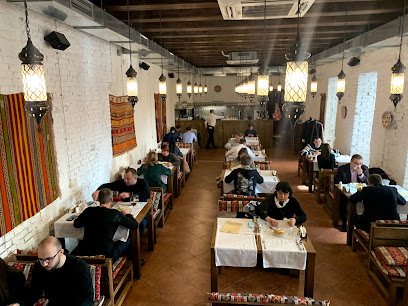
Mama Manana
Discover the rich flavors of Georgia at Mama Manana in Kyiv – a must-visit destination for food lovers seeking authentic culinary experiences.
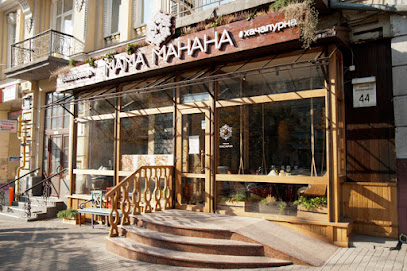
Ostannya Barykada
Experience authentic Ukrainian cuisine at Ostannya Barykada, where history meets culinary delight in the heart of Kyiv.
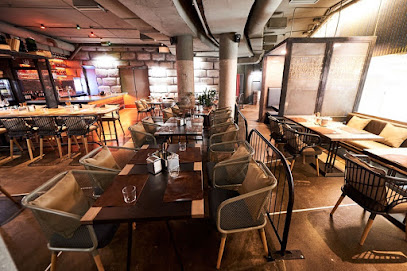
Chachapuri Restaurant
Discover authentic Georgian cuisine at Chachapuri Restaurant in Kyiv – where tradition meets flavor in every delightful dish.
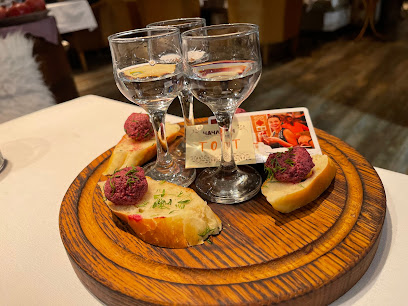
Favorite Uncle
Experience the best of Mediterranean cuisine at Favorite Uncle in Kyiv, where exceptional flavors meet vibrant atmosphere.
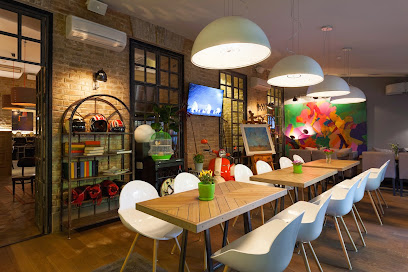
Pervak
Discover the essence of Ukrainian culinary traditions at Pervak in Kyiv - where every dish tells a story.
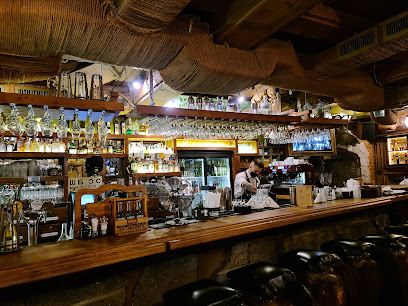
Very Well Cafe
Discover culinary delight at Very Well Cafe in Kyiv, where fresh ingredients meet inviting ambiance for an unforgettable dining experience.
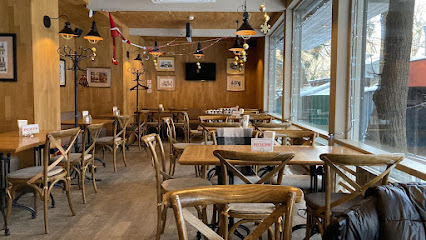
Moments
Discover delightful family dining at Moments in Kyiv - where culinary diversity meets warm hospitality in a charming atmosphere.
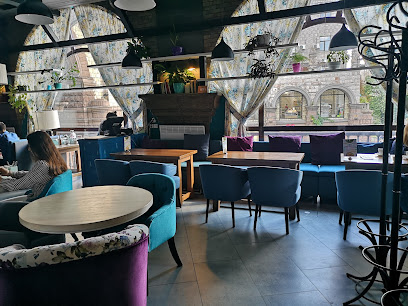
Naturlih
Discover authentic German cuisine and craft beers at Naturlih in Kyiv - a must-visit for food lovers and beer enthusiasts alike.
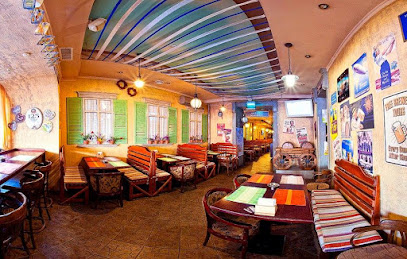
KANAPA restaurant
Savor the best of Ukrainian cuisine at KANAPA restaurant in Kyiv - a must-visit destination for food lovers.
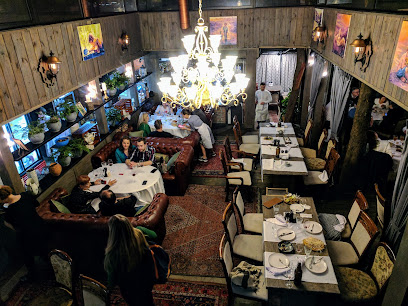
VINO e CUCINA
Experience authentic Italian cuisine at VINO e CUCINA in Kyiv – where every meal tells a story of tradition and flavor.
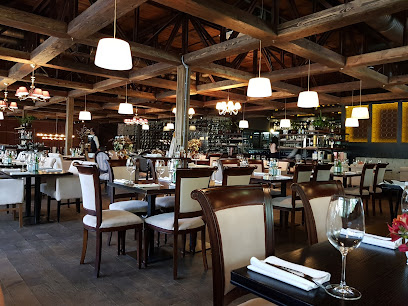
Korchma Taras Bulba
Discover the essence of Ukrainian culture through delicious food at Korchma Taras Bulba in Kyiv.
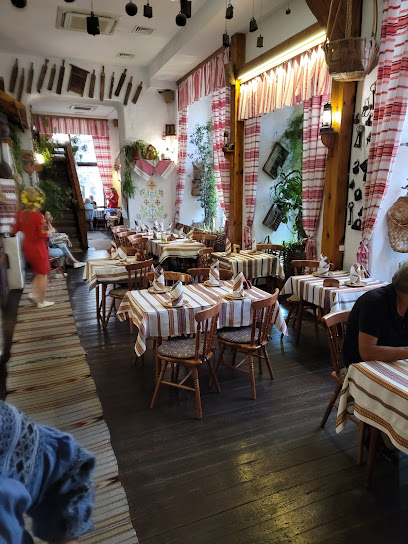
O'panas
Discover authentic Ukrainian cuisine at O'panas in Kyiv – where tradition meets flavor in a cozy atmosphere.
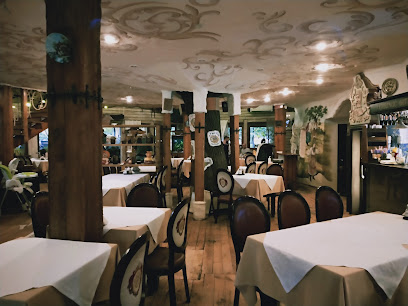
Hutorets na Dnipri
Experience authentic Ukrainian cuisine at Hutorets na Dnipri with stunning river views and exceptional service.
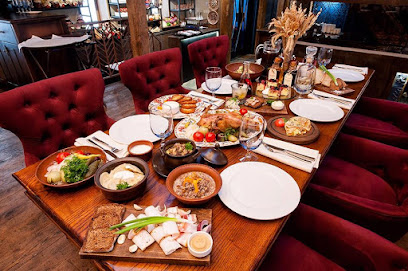
Markets, malls and hidden boutiques
Ocean Plaza
Discover Ocean Plaza: Kyiv's premier shopping destination featuring luxury brands, diverse dining, and family-friendly entertainment all in one place.
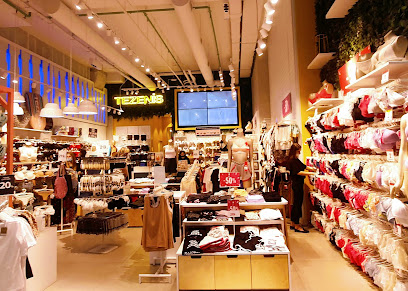
Lavina Mall
Discover Lavina Mall, Kyiv’s premier shopping destination with a diverse range of stores, delectable dining, and exciting entertainment for all ages.
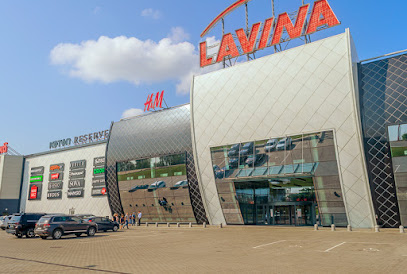
ТРЦ Gulliver
Discover TРЦ Gulliver, Kyiv's premier shopping destination, featuring top brands, delicious dining, and family-friendly entertainment.

DREAM yellow
Explore the vibrant DREAM Yellow Shopping Mall in Kyiv for an unforgettable shopping and dining experience in Ukraine’s capital.
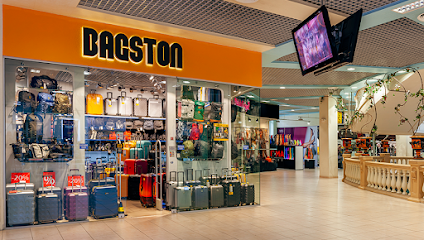
Cosmo Multimall
Discover the ultimate shopping and entertainment destination in Kyiv at Cosmo Multimall, where fun and fashion come together.
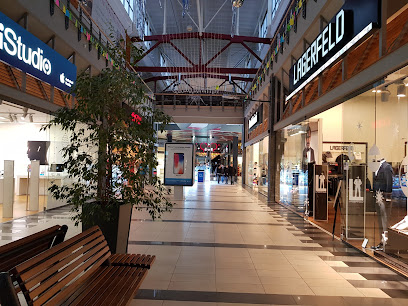
SkyMall
Discover the vibrant SkyMall in Kyiv, a shopping paradise with over 200 stores, diverse dining options, and exciting entertainment for all ages.
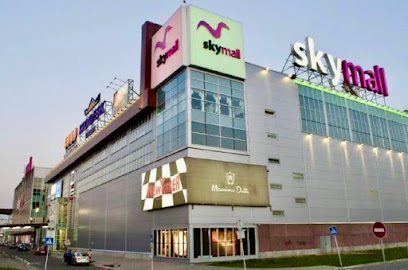
Globus Mall
Discover the ultimate shopping and dining experience at Globus Mall, a modern landmark in the heart of Kyiv, perfect for tourists looking for a vibrant atmosphere.
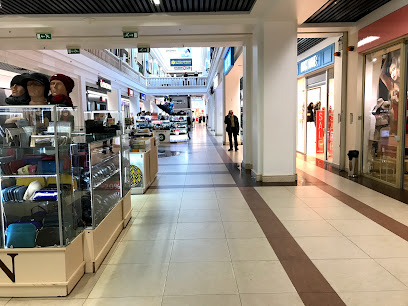
Ukraina Shopping Mall
Discover the best shopping experience in Kyiv at Ukraina Shopping Mall, where fashion meets convenience in a vibrant atmosphere.
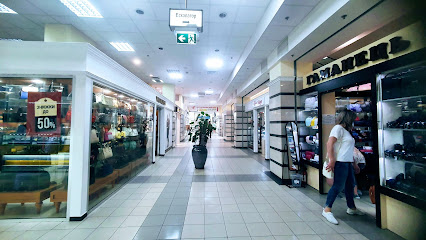
TSUM
Discover luxury shopping, gourmet dining, and architectural beauty at TSUM, Kyiv's iconic department store in the heart of the city.
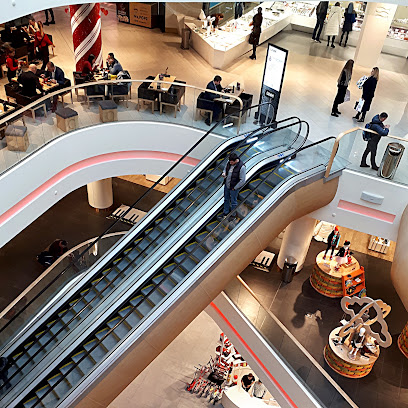
River Mall
Explore River Mall in Kyiv – a vibrant shopping paradise with diverse retail options, delicious dining, and family-friendly entertainment along the Dnipro River.
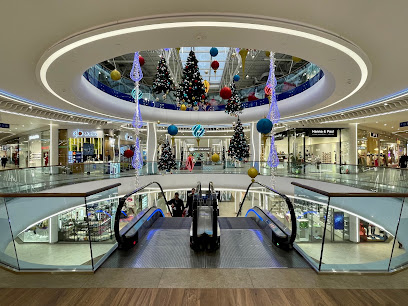
Gorodok Shopping Mall
Explore the Gorodok Shopping Mall in Kyiv, a vibrant hub for shopping, dining, and entertainment for all visitors.
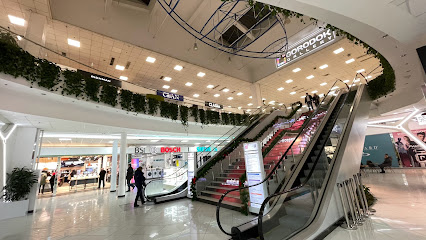
Art Mall
Discover Art Mall in Kyiv - A premier shopping destination blending fashion, art, and culinary delights for an unforgettable experience.

Blockbuster Mall
Discover shopping bliss at Blockbuster Mall, Kyiv's premier destination for fashion, food, and entertainment.
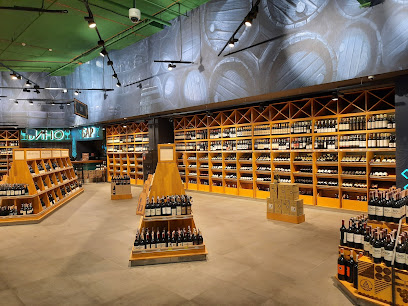
Promenada Centre
Explore Kyiv's contemporary lifestyle at Promenada Centre, a vibrant shopping mall with diverse shops, dining, and entertainment experiences.

Art Eclair
Discover the exquisite pastries and cozy ambiance at Art Eclair in Kyiv, a delightful café perfect for sweet indulgence.
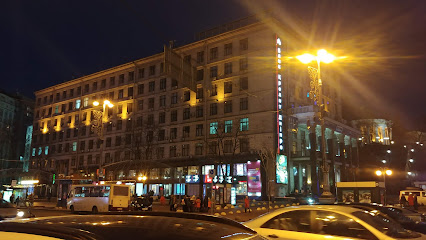
Essential bars & hidden hideouts
Lysa Hora
Discover Lysa Hora, a chic cocktail bar in Kyiv known for its innovative drinks, vibrant atmosphere, and unforgettable nightlife experience.
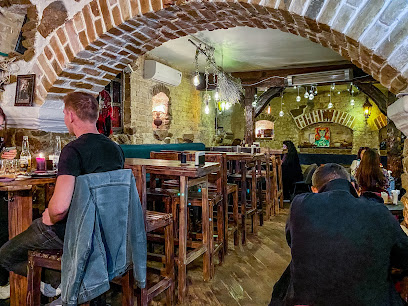
Pink Freud Kyiv
Discover Pink Freud, a lively bar in Kyiv known for its creative cocktails and vibrant atmosphere, perfect for a night out with friends.
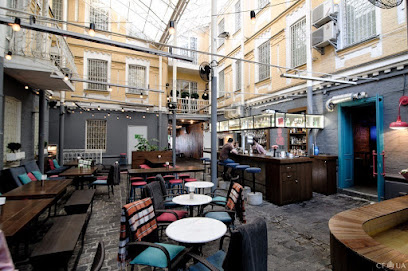
Alchemist Bar
Experience the innovative cocktail culture at Alchemist Bar, a vibrant nightlife spot in Kyiv's Pechers'kyi district.
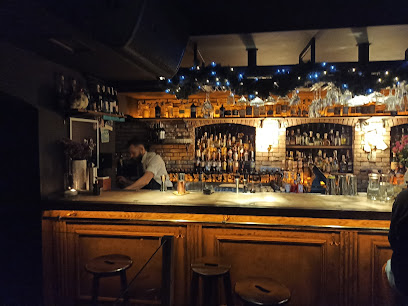
AMIGOS BAR
Experience the lively atmosphere of AMIGOS BAR in Kyiv, where great drinks and friendly vibes await you in the heart of the city.
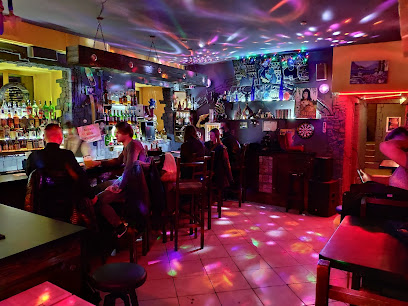
Old Bar
Experience the lively atmosphere of Old Bar in Kyiv, where great beer and vibrant decor create the perfect nightlife escape.
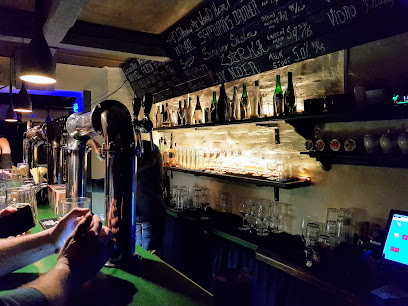
Loggerhead
Experience the vibrant nightlife of Kyiv at Loggerhead, a premier cocktail bar with an extensive drink menu and chic atmosphere.
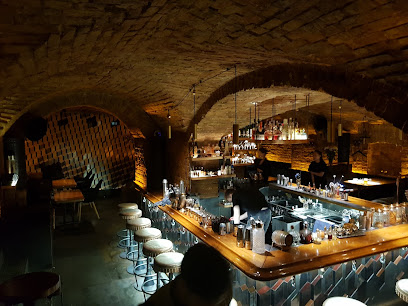
Dorothy Pub
Discover the heart of Kyiv's nightlife at Dorothy Pub, where local flavors and vibrant ambiance come together for an unforgettable experience.
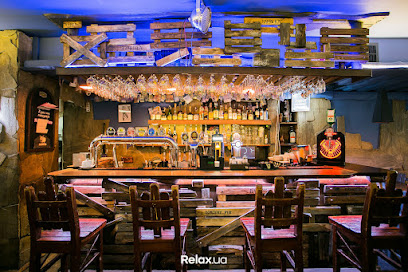
Parovoz Speak Easy
Experience the art of mixology at Parovoz Speak Easy, Kyiv's premier cocktail bar known for its innovative drinks and cozy atmosphere.
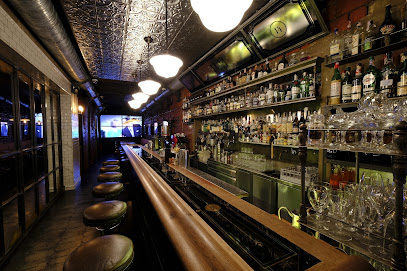
HEDONIST Bar&Kitchen
Discover HEDONIST Bar&Kitchen, where innovative cocktails and delicious dishes come together in the heart of Kyiv's nightlife.
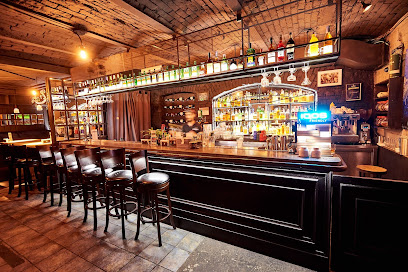
Wood You Like Bar
Experience the unique blend of creativity and comfort at Wood You Like Bar in Kyiv, where expertly crafted cocktails meet a cozy atmosphere.
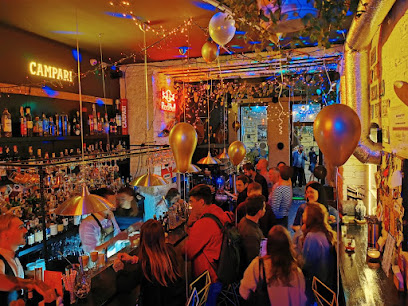
N::B Cocktails Bar
Discover the vibrant nightlife of Kyiv at N::B Cocktails Bar, where expertly crafted cocktails and a lively atmosphere await.
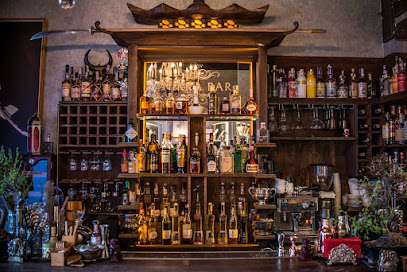
Bar/13
Experience the vibrant nightlife of Kyiv at Bar/13, where expertly crafted cocktails and a lively atmosphere await you.
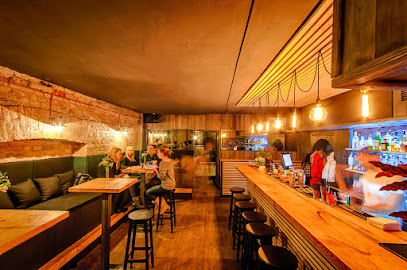
Grails Bar
Discover the vibrant nightlife at Grails Bar in Kyiv, where great drinks and live entertainment create an unforgettable experience.
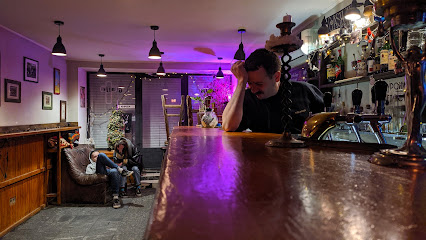
b-hush rooftop lounge bar
Experience exquisite cocktails and stunning views at b-hush Rooftop Lounge Bar, the ultimate upscale destination in Kyiv's vibrant nightlife.

Local Phrases
-
- HelloПривіт
[Pri-vit] - GoodbyeДо побачення
[Do po-ba-chen-nya] - YesТак
[Tak] - NoНі
[Ni] - Please/You're welcomeБудь ласка
[Bud' la-ska] - Thank youДякую
[Dya-ku-yu] - Excuse me/SorryВибачте
[Vy-bach-te] - How are you?Як справи?
[Yak spra-vy] - Fine. And you?Добре. А ви?
[Do-bre. A vi?] - Do you speak English?Ви говорите англійською?
[Vy go-vo-ri-te an-glii-s'ko-yu] - I don't understandЯ не розумію
[Ya ne ro-zu-mi-yu]
- HelloПривіт
-
- I'd like to see the menu, pleaseЯ б хотів подивитися меню, будь ласка
[Ya b kho-tiv po-di-vi-ty-sya me-nyu, bud' la-ska] - I don't eat meatЯ не їм м'ясо
[Ya ne yim m'ya-so] - Cheers!Будьмо!
[Bud'-mo] - I would like to pay, pleaseЯ б хотів заплатити, будь ласка
[Ya b kho-tiv za-pla-ty-ty, bud' la-ska]
- I'd like to see the menu, pleaseЯ б хотів подивитися меню, будь ласка
-
- Help!Допоможіть!
[Do-po-mo-zhit'] - Go away!Піди геть!
[Pi-di het'] - Call the Police!Викличте поліцію!
[Vik-li-chte po-li-tsi-yu] - Call a doctor!Викличте лікаря!
[Vik-li-chte li-ka-rya] - I'm lostЯ загубився
[Ya za-hu-biv-sya] - I'm illЯ хворий
[Ya khvo-riy]
- Help!Допоможіть!
-
- I'd like to buy...Я б хотів купити...
[Ya b kho-tiv ku-py-ty] - I'm just lookingЯ просто дивлюсь
[Ya pro-sto di-vlyu-s'] - How much is it?Скільки це коштує?
[Ski-lik-y tse koshtu-ye] - That's too expensiveЦе занадто дорого
[Tse za-nad-to do-ro-ho] - Can you lower the price?Чи можете ви знизити ціну?
[Chi mo-ye-te vi zni-zi-ty tsi-nu]
- I'd like to buy...Я б хотів купити...
-
- What time is it?Котра година?
[Kot-ra ho-di-na] - It's one o'clockОдна година
[Od-na ho-di-na] - Half past (10)Пів на одинадцяту
[Piv na o-di-na-dtsya-tu] - MorningРанок
[Ra-nok] - AfternoonДень
[Den'] - EveningВечір
[Ve-chir] - YesterdayВчора
[Vcho-ra] - TodayСьогодні
[S'yo-hod-ni] - TomorrowЗавтра
[Zav-tra] - 1Один
[O-din] - 2Два
[Dva] - 3Три
[Try] - 4Чотири
[Cho-ty-ry] - 5П'ять
[P'yat] - 6Шість
[Shist'] - 7Сім
[Sim] - 8Вісім
[Vi-sim] - 9Дев'ять
[Dev'yat'] - 10Десять
[De-syat']
- What time is it?Котра година?
-
- Where's a/the...?Де є/знаходиться...?
[De ye/zna-kho-di-t'sya] - What's the address?Яка адреса?
[Ya-ka a-dre-sa] - Can you show me (on the map)?Чи можете ви мені показати (на карті)?
[Chi mo-ye-te vi me-ni po-ka-sa-ty (na kar-ti)] - When's the next (bus)?Коли наступний (автобус)?
[Ko-li na-stup-niy (av-to-bus)] - A ticket (to ....)Квиток (до ...)
[Kvi-tok (do ...)]
- Where's a/the...?Де є/знаходиться...?
History of Kyiv
-
Kyiv, often referred to as the 'Mother of Rus Cities,' was founded in the late 5th or early 6th century by the Slavic tribes. According to legend, the city was established by three brothers, Kyi, Shchek, and Khoryv, and their sister Lybid. The city is named after the eldest brother, Kyi. Its strategic location along the Dnieper River made it a crucial center for trade and culture.
-
Kyiv became the capital of the Kyivan Rus, a federation of Slavic tribes under the rule of the Varangians, in the 9th century. This period saw Kyiv's transformation into a major political, economic, and cultural hub. The Baptism of Kyivan Rus in 988, when Prince Vladimir the Great adopted Christianity, marked a significant turning point, integrating Kyiv into the broader Christian world.
-
In 1240, Kyiv suffered a devastating blow when it was sacked by the Mongol Empire under Batu Khan. This invasion led to the city's decline in prominence as it struggled to recover from the extensive destruction. The fall of Kyiv marked the end of the Kyivan Rus era, and the city's importance diminished for several centuries.
-
During the 14th century, Kyiv came under the control of the Grand Duchy of Lithuania and later the Polish-Lithuanian Commonwealth. This period saw the city's gradual recovery and growth. Kyiv became a significant center for the Orthodox Church and education, with the establishment of the Kyiv-Mohyla Academy in 1632, one of Eastern Europe's oldest educational institutions.
-
In the mid-17th century, Kyiv became part of the Cossack Hetmanate following the Khmelnytsky Uprising against Polish rule. The Pereyaslav Agreement of 1654, which aligned the Cossack state with the Tsardom of Russia, further influenced Kyiv's development. This era saw the city becoming a focal point for Cossack culture and autonomy.
-
Kyiv was absorbed into the Russian Empire in the late 18th century, becoming a major administrative and cultural center. The city experienced significant growth and modernization during this period. In the 20th century, Kyiv endured immense hardship during both World Wars and the Soviet era, including the Holodomor famine and the impact of the Chernobyl disaster in 1986.
-
With the collapse of the Soviet Union in 1991, Kyiv became the capital of an independent Ukraine. The city has since experienced a cultural and economic renaissance, marked by the Orange Revolution in 2004 and the Euromaidan protests in 2013-2014, which emphasized Ukraine's push towards European integration and democratic values.
-
Today, Kyiv is a vibrant metropolis known for its rich history, diverse architecture, and cultural heritage. Landmarks such as the Kyiv Pechersk Lavra, Saint Sophia's Cathedral, and Independence Square reflect the city's storied past and dynamic present. Kyiv continues to be a beacon of Ukrainian identity and resilience.
Kyiv Essentials
-
Kyiv is well-connected by air, rail, and road. The main gateway is Boryspil International Airport (KBP), located about 29 kilometers southeast of the city center. The airport serves numerous international and domestic flights. Alternatively, Kyiv International Airport (Zhuliany) (IEV) is closer to the city center and handles a mix of domestic and international flights. Kyiv is also accessible by train from major European cities, with the main railway station being Kyiv-Pasazhyrskyi. Buses and cars can also be used to reach Kyiv from neighboring countries.
-
Kyiv has an extensive public transportation network, including metro, buses, trams, and trolleybuses. The metro is the most efficient way to get around, with three lines covering the city. Tickets can be purchased at stations or via contactless payment. Taxis and ride-sharing services like Uber and Bolt are also widely available. For short distances, marshrutkas (minibuses) are a popular option. Renting a car is possible, but parking can be challenging in the city center.
-
The official currency in Ukraine is the Ukrainian Hryvnia (UAH). Credit cards are widely accepted in hotels, restaurants, and shops in Kyiv. However, it is advisable to carry some cash for smaller establishments and markets. ATMs are abundant and can be found throughout the city. Currency exchange offices are also available, but it’s best to compare rates and avoid exchanging money on the street.
-
Kyiv is generally a safe city for tourists, but like any major city, it is important to stay vigilant. Avoid poorly lit areas at night and be cautious in crowded places to prevent pickpocketing. Areas around the main train station and some parts of Podil can have higher crime rates targeting tourists. Always keep an eye on your belongings and use hotel safes for valuables. It is advisable to use registered taxis or ride-sharing services rather than hailing cabs on the street.
-
In case of emergency, dial 112 for immediate assistance. This number connects to police, medical, and fire services. Major hospitals in Kyiv include the Oleksandrivska Clinical Hospital and the Feofania Clinical Hospital. It is recommended to have travel insurance that covers medical emergencies. Pharmacies are widely available and staff often speak basic English. For minor issues, over-the-counter medications can be easily purchased.
-
Fashion: Do dress comfortably but modestly. Avoid overly casual or revealing clothing, especially when visiting religious sites. Religion: Do respect local customs and traditions. Cover your head when entering churches and be quiet inside. Public Transport: Do be polite and offer your seat to elderly passengers. Don’t eat or drink on public transport. Greetings: Do greet people with a firm handshake and maintain eye contact. Using first names is common after a brief introduction. Eating & Drinking: Do try local dishes like borscht and varenyky. Don’t start eating until your host begins and always toast with a 'Budmo!' when drinking.
-
To experience Kyiv like a local, visit the open-air markets such as Besarabsky Market for fresh produce and local delicacies. Take a stroll along Andriyivskyy Descent, known for its art and crafts. Engage with locals in parks or cafes, as they are often friendly and open to conversation. Attend a traditional Ukrainian folk music performance or a local football match for a unique cultural experience. Don’t miss exploring the less touristy neighborhoods like Obolon with its beautiful embankment along the Dnieper River.
Trending Landmark in Kyiv
-
Володимирська Гірка
-
Golden Gate
-
Arka Svobody Ukrayinsʹkoho Narodu
-
Kiev Pechersk Lavra
-
Independence Square
-
Park Landscape Alley
-
National Museum of the History of Ukraine in the Second World War
-
Expo Center of Ukraine
-
National Sports Complex “Olympiyskiy”
-
Ukrainian Motherland Monument
-
Park of Eternal Glory
-
St. Michael's Golden-Domed Monastery
-
St. Andrew's Church
-
Park Bridge
-
St. Volodymyr's Cathedral
Nearby Cities to Kyiv
-
Things To Do in Chernihiv
-
Things To Do in Cherkasy
-
Things To Do in Vinnytsia
-
Things To Do in Kropyvnytskyi
-
Things To Do in Kremenchuk
-
Things To Do in Khmelnytskyi
-
Things To Do in Poltava
-
Things To Do in Sumy
-
Things To Do in Kryvyi Rih
-
Things To Do in Orhei
-
Things To Do in Ternopil
-
Things To Do in Lutsk
-
Things To Do in Chișinău
-
Things To Do in Tiraspol
-
Things To Do in Chernivtsi

















